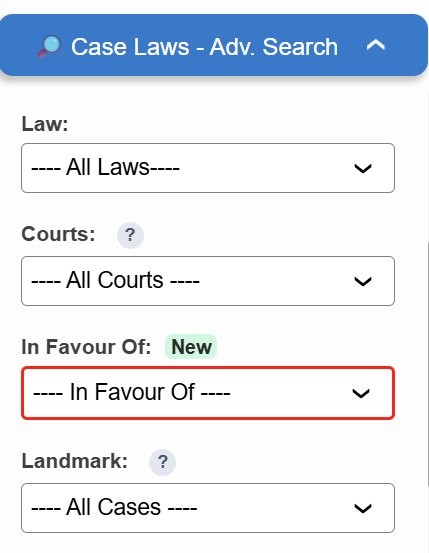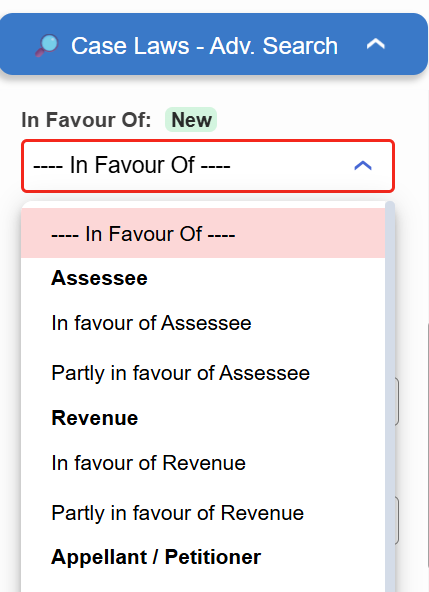Introducing the “In Favour Of” filter in Case Laws.
- ⚖️ Instantly identify judgments decided in favour of the Assessee, Revenue, or Appellant
- 🔍 Narrow down results with higher precision
Try it now in Case Laws →


Just a moment...
Introducing the “In Favour Of” filter in Case Laws.
Try it now in Case Laws →


Press 'Enter' to add multiple search terms. Rules for Better Search
No Folders have been created
Are you sure you want to delete "My most important" ?
NOTE:
Don't have an account? Register Here
<h1>Supreme Court upholds transit fee levy as valid under U.P. Rules, emphasizing regulatory nature</h1> The Supreme Court overturned the High Court's decision and held that the levy of transit fee under Rule 5 of the U.P. Transit of Timber and Other Forest ... - Issues:Validity of levy of transit fee under Rule 5 of U.P. Transit of Timber and Other Forest Produce Rules, 1978.Analysis:1. The primary issue in this case revolves around the validity of the levy of transit fee under Rule 5 of the U.P. Transit of Timber and Other Forest Produce Rules, 1978. The High Court upheld the constitutionality of the rule but invalidated the levy of transit fee due to the absence of quid pro quo. The State Government challenged this decision, arguing that the levy of transit fee could be supported by providing services as quid pro quo.2. The Rules in question were framed under the Indian Forest Act, 1927, specifically under Sections 41, 42, 51, and 76. These rules regulate the transit of forest produce through the issuance of transit passes, imposition of fees, and affixing transit marks to timber. Section 41 of the Act empowers the State Government to make rules to regulate the transit of forest produce, including prescribing routes, issuing passes, collecting fees, and establishing depots for examination and marking of forest produce.3. The High Court, in its judgment, determined that the State Government had the constitutional competence to impose transit fees under Section 41(2) of the Act. It held that the power to regulate transit of timber and levy fees extended not only to owners but also to traders involved in transporting forest produce. The High Court concluded that the transit fee fell within the general power of control over transit under the Act.4. However, the High Court invalidated the levy of transit fee on the grounds that it lacked a reasonable relationship between the fee charged and the services provided. It held that no service was rendered in exchange for the fee, thereby failing the quid pro quo principle. The Court emphasized the need for a connection between the fee and the services offered, especially in compensatory fees.5. The Supreme Court, in its analysis, clarified the distinction between tax and fee, highlighting that a fee could be regulatory in nature and might not always require a quid pro quo. Citing precedents, the Court emphasized that for regulatory fees, establishing a direct service in return for the fee was not mandatory. Therefore, the Court held that the transit fee under Rule 5 was regulatory and did not necessitate proving quid pro quo.6. Consequently, the Supreme Court allowed the appeals, overturning the High Court's decision on the invalidity of the transit fee. The Court held that the levy of transit fee was valid, setting aside the judgment of the High Court. The Court also noted that the penalty imposed would be valid, provided it adhered to the provisions of the Act. The State Government had already amended the Rule to align the penalty provisions with the Act, addressing any concerns in that regard.